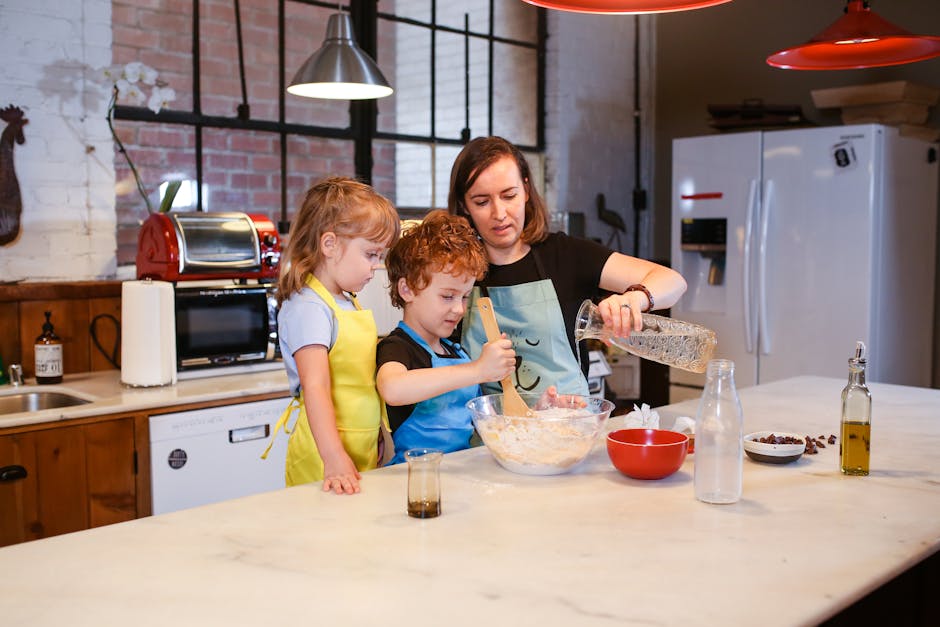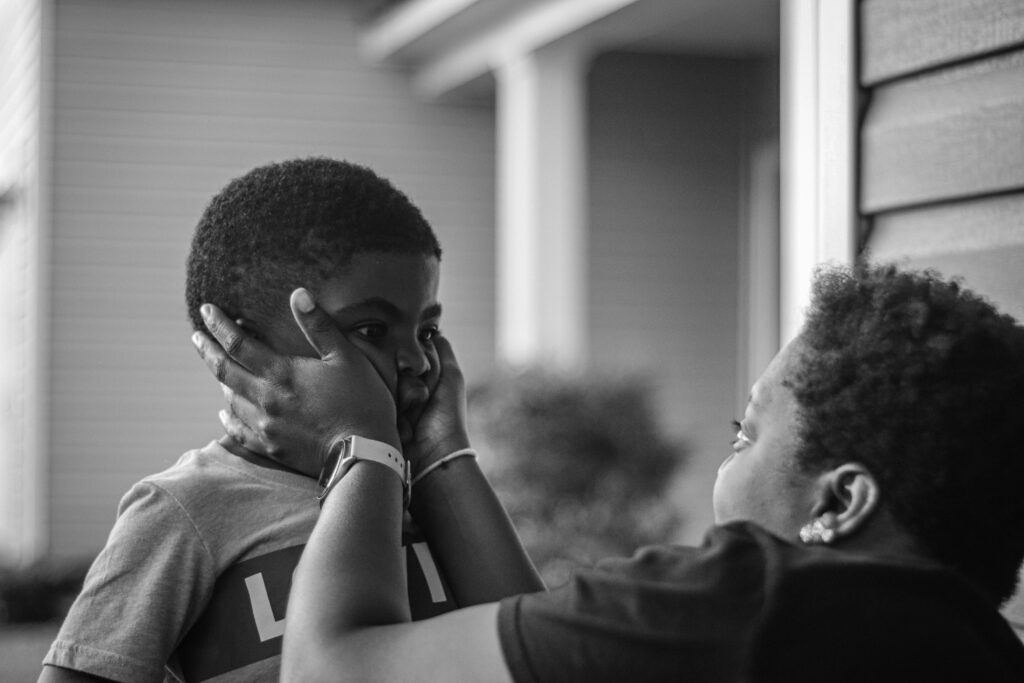Navigating the complexities of co-parenting can take a significant emotional toll on individuals striving to maintain balance and harmony in their shared parenting journey. As a co-parent myself, I understand firsthand the challenges and emotional struggles that can arise when trying to co-parent effectively while prioritizing mental wellness.
The emotional rollercoaster of co-parenting can often leave individuals feeling overwhelmed, stressed, and emotionally drained. In this article, I’ll delve into the emotional impact of co-parenting and provide practical coping strategies to promote mental wellness amidst the challenges.
From setting boundaries and practicing self-care to seeking support and fostering open communication, I’ll share valuable insights and tips to help individuals navigate the emotional complexities of co-parenting with resilience and strength. Let’s explore how we can prioritize our mental well-being while co-parenting effectively.
Understanding the Emotional Impact of Co-Parenting
Exploring the emotional realm of co-parenting reveals a profound journey filled with highs and lows. Navigating through shared responsibilities while managing individual emotions can be challenging.
It’s essential to recognize that the emotional impact of co-parenting can vary widely, influenced by factors such as past relationships, communication dynamics, and personal coping mechanisms. Acknowledging the diverse range of emotions that co-parenting can evoke is crucial for fostering a deeper understanding of its complexities.
Maintaining balance amidst emotional turmoil requires a nuanced approach. It’s common for feelings of guilt, resentment, or even loneliness to surface during the co-parenting journey. Understanding these emotions as natural responses to the evolving dynamics can help in coping effectively.
Recognizing and validating one’s emotional state without judgment is a vital step towards emotional well-being. Moreover, the interaction between co-parents can significantly shape the emotional landscape.
Positive communication fosters cooperation and mutual respect, leading to a healthier co-parenting dynamic. On the contrary, misunderstandings or conflicts can exacerbate emotional strain, impacting both the parents and, indirectly, the children involved. Prioritizing clear and respectful communication channels is pivotal in mitigating unnecessary emotional distress.
In essence, comprehending the emotional impact of co-parenting necessitates a holistic view, encompassing individual experiences, relational dynamics, and external influences. Embracing emotional transparency, nurturing positive interactions, and seeking personal growth within the co-parenting framework can pave the way for a more emotionally resilient and fulfilling journey.
Common Challenges Faced in Co-Parenting
- Communication breakdowns: Misunderstandings or lack of clarity between co-parents can create tension, making it difficult to collaborate effectively for the child’s well-being.
- Role confusion: Conflicting expectations about parenting responsibilities can lead to frustration and uncertainty, affecting the emotional balance of both parents and children.
Communication Issues
Effective communication plays a vital role in successful co-parenting. However, miscommunication or lack of communication can give rise to misunderstandings and conflicts between co-parents.
Simple issues like differing parenting styles, inconsistent messaging to the children, or unclear boundaries can lead to tension and emotional strain. It’s crucial for co-parents to establish clear and open lines of communication, set boundaries, and prioritize respectful dialogue to navigate challenges effectively.
Role Confusion
Co-parenting often involves defining and maintaining distinct roles within the shared responsibility of raising children. Role confusion can arise when co-parents have conflicting expectations or unclear boundaries regarding their individual roles and responsibilities.
This ambiguity can lead to frustration, resentment, and feelings of being overwhelmed. To address role confusion, co-parents should have honest conversations about expectations, define roles and responsibilities clearly, and work towards a cohesive parenting plan that respects each individual’s contribution while promoting a harmonious co-parenting dynamic.
Importance of Mental Wellness in Co-Parenting
Exploring the emotional impact of co-parenting underscores the significance of maintaining mental wellness throughout the journey. As emotional challenges like guilt, resentment, and loneliness are prevalent, prioritizing mental well-being becomes pivotal.
Acknowledging and addressing these emotions as natural responses can lay the foundation for a healthier co-parenting dynamic. Effective communication emerges as a cornerstone for successful co-parenting, highlighting the need for clear, open, and respectful dialogue.
Misunderstandings resulting from poor communication can intensify emotional strain, emphasizing the importance of fostering cooperation through positive interaction. Additionally, role confusion presents a common hurdle in co-parenting dynamics, stemming from undefined boundaries and conflicting expectations.
Encouraging honest conversations between co-parents to clarify roles and establish a comprehensive parenting plan can mitigate such challenges. In essence, nurturing mental wellness in co-parenting involves embracing emotional transparency, fostering positive communication, and striving for personal growth.
By prioritizing mental well-being and recognizing the emotional complexities inherent in co-parenting, individuals can cultivate a resilient and fulfilling shared parenting experience.
Coping Strategies for Emotional Wellbeing
Exploring coping strategies for emotional wellbeing in the context of co-parenting is crucial for maintaining mental wellness throughout the journey. As a co-parent, I understand the significance of prioritizing emotional health amidst the challenges that may arise.
Here are essential coping strategies to consider:
Setting Clear Boundaries
Establishing clear boundaries is key to safeguarding emotional wellbeing in co-parenting relationships. It’s important to define roles, responsibilities, and expectations to create a sense of structure and stability.
By setting boundaries, co-parents can minimize misunderstandings and reduce potential conflicts, fostering a more harmonious co-parenting dynamic.
Practicing Self-Care
Self-care is paramount in preserving emotional balance while navigating the complexities of co-parenting. Prioritize activities that promote self-nurturing and recharge your emotional reserves.
Whether it’s engaging in hobbies, seeking professional support, or simply taking time for yourself, self-care plays a vital role in enhancing mental wellness and resilience.
Seeking Support
Seeking support from friends, family, or a therapist can offer valuable insights and emotional guidance during challenging times. Surrounding yourself with a supportive network can provide comfort, perspective, and encouragement.
Sharing experiences and emotions with trusted individuals can help alleviate feelings of isolation and strengthen your emotional resilience.
Fostering Open Communication
Open and honest communication is the cornerstone of effective co-parenting and maintaining emotional wellbeing. Regularly engage in constructive dialogues with your co-parent to discuss concerns, share perspectives, and collaborate on parenting decisions.
Emphasize active listening, empathy, and respect to cultivate a positive communication environment that fosters understanding and cooperation. Embracing these coping strategies can significantly impact your emotional wellness and resilience in the co-parenting journey.
By setting boundaries, prioritizing self-care, seeking support, and fostering open communication, co-parents can navigate emotional challenges with greater clarity and mindfulness, fostering a more positive and fulfilling co-parenting experience.




